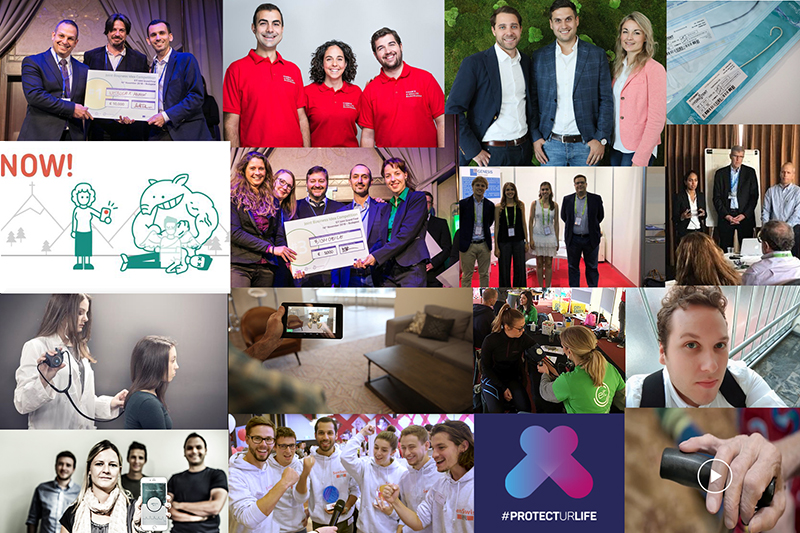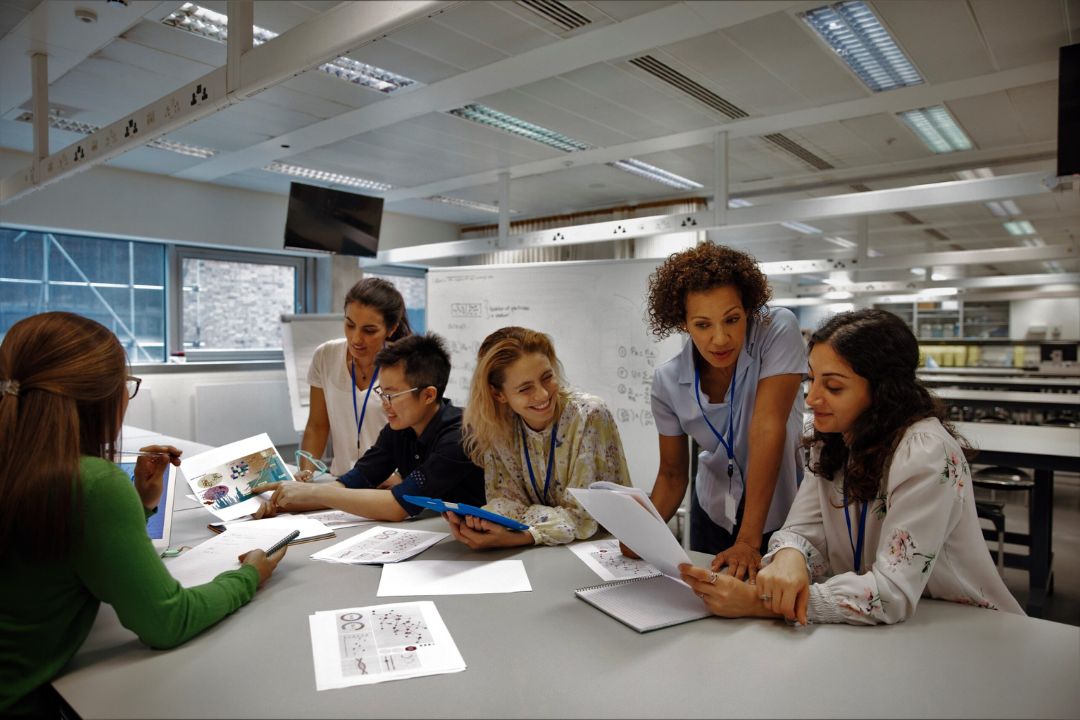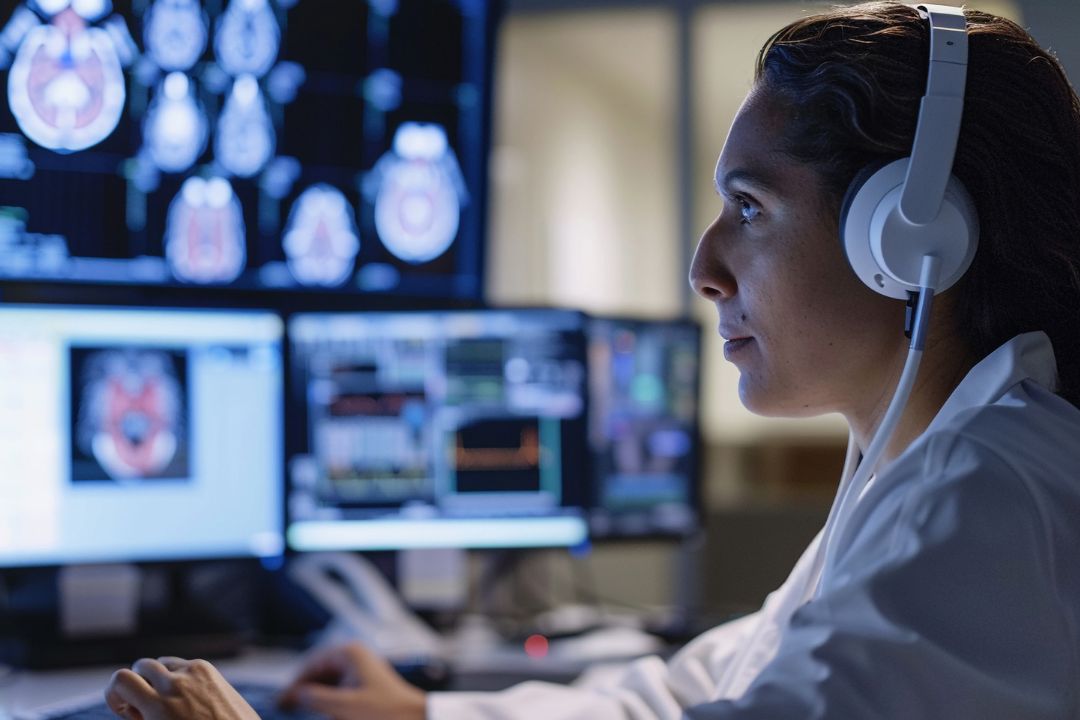27th June 2019
Read about these successes below
Among the many successes in healthcare innovation in 2018 made possible by EIT Health, 35 “Success Stories” have been approved as outstanding examples of the work we do by the European Institute of Innovation and Technology (EIT), an EU body that supports EIT Health.
Like all EIT Health activities, these 35 projects, programmes and start-ups promise to make critical improvements in healthcare for citizens in Europe, and beyond. The EIT has singled them out for special recognition as projects that have excelled thanks to EIT Health support.
Success Stories of EIT Health, and the rest of the EIT Community, that receive official recognition from the EIT are counted among Key Performance Indicators of EIT. EIT Health’s target for 2018 was approval of 25 Success Stories, so the target was clearly exceeded.

In the coming weeks, detailed profiles of these Success Stories will be posted on the Success Stories page on EIT Health’s website.
Each programme area – Innovation Projects, Accelerator for business development, and Campus for education – had more Success Stories accepted than in 2017. We want to thank and congratulate our partners and start-ups for this outstanding achievement.
EIT Health’s 2018 Success Stories approved by EIT
EIT Health Success Stories approved by EIT for 2018 are listed below, along with the programme area and the EIT Health Region in which the successful project lead partner or individual is located. While there is only one lead partner, several partners from several countries are involved in all these projects. More information can be found on the individual pages presenting these projects and start-ups (links below). (About half of these Success Stories are pictured above.)
ABLE Human Motion (Accelerator, Spain): This medical device spin-off from the Polytechnic University of Catalonia (UPC) has developed the first home use, affordable and lightweight exoskeleton that restores stroke and spinal cord injury sufferers’ ability to walk.
Abtrace (Innovation, UK-Ireland): An AI algorithm support system to reduce anti-microbial resistance is being developed by a start-up incorporated out of the EIT Health WildCard programme in 2018.
ADPS (Innovation, UK-Ireland): An EIT Health Innovation Project, this start-up facilitating early Alzheimer’s prediction secured investment and won an EIT Health EIT Innovation Award.
Aelix Therapeutics (Accelerator, Spain): This clinical-stage biotechnology company focuses on the development of a therapeutic HIV vaccine. In April 2018, on the strength of previous clinical trials and the solidity of the company, Aelix Therapeutics signed a multi-million-euro collaboration agreement with Gilead Sciences.
AuriGen Medical (Campus, UK-Ireland): AuriGen Medical has developed an award-winning cardiac implant to correct atrial fibrillation, thanks in part to the EIT Health-supported fellowship programme BioInnovate Ireland. The company has secured significant investment, and ranks first among European start-ups for Horizon2020 funding.
Climedo (Accelerator, Germany): This EIT Health Headstart award winner offers intelligent software solutions to accelerate medical innovation. Together with Europe’s leading hospitals, they have developed a user-friendly platform that allows medical professionals to conduct clinical trials much more quickly, while improving quality and collaboration. They have secured significant funding from European institutions and renowned business angels.
Cross-KiC RIS Joint Business Ideas Competition (Cross-KIC/InnoStars): Jointly organised by EIT Health, EIT Raw Materials, and EIT Food, the Business Idea Competition helps to improve cross-sectoral innovation performance in EIT RIS countries along the following thematic areas: 1) Food, 2) Health, and 3) Raw Materials.
Cross KiC RIS: Nebula X Medical (Cross-KIC/InnoStars): An innovation coming out of the EIT Health InnoStars StarShip programme, Nebula-X Medical is a swallowable radar chip that scans the surface of the colon and reduces the polyp miss rate. The project began its path through the EIT Acceleration programmes.
DrOmnibus (Accelerator, InnoStars): A competitor in the EIT Health European Health Catapult contest, this company started its business with the implementation of technology for autism. It is now ready to start clinical validation on the solution, to become the first-ever reimbursed digital drug for this disorder.
ekolive (Cross-KIC/InnoStars): EIT Health is leading the Cross-KIC activity that includes this EIT Raw Materials start-up.
Enmodes (Accelerator, Germany): The company’s “Lung in a Backpack” improves quality of life for chronic obstructive pulmonary disease patients. Enmodes, an EIT Venture Award 2018 finalist supported by EIT Health, has secured its first customers.
Fibricheck (Accelerator, BeNe): FibriCheck is the world’s only medically certified app that can help prevent strokes by detecting atrial fibrillation and other heart rhythm disorders using only a smartphone or smartwatch. The start-up was a winner of the EIT Health European Health Catapult contest and a beneficiary of the EIT Health Headstart and Product/Market Fit programmes, as well as an EIT Venture Award winner.
HealIQs4Cities (Campus, BenNe): Co-created community outreach brings together citizens, SMEs, local government and academia to help citizens change their behaviour and choose healthy living options that will reduce their risk of developing of chronic conditions like cardiovascular diseases, chronic respiratory diseases and diabetes.
Hernâni Zão Oliveira (Campus InnoStars): EIT Health InnoStars Starship programme alumni Hernâni Zão Oliveira has secured funding for innovative intergenerational health education in northern Portugal.
Hoop 2.0 (Innovation, Spain): This EIT Health Innovation Project, has launched a Parkinson’s rehabilitation app. The innovation, which includes a wearable product for measuring movement and a remote connection with caregivers, offers a set of training exercises combined with music and auditory cueing to keep patients engaged, so they can easily enjoy the increased benefits of more regular rehabilitation sessions.
Hydrustent (Accelerator, InnoStars) HydrUStent is a Portuguese spin-off developing a biodegradable ureteral stent that will revolutionise the market – providing lower treatment costs and eliminating the need for second surgery for stent removal. This reduces costs and the risk of complications.
iCellate (Accelerator, Scandinavia): iCellate Medical offers services in liquid biopsy, to detect, isolate and analyse circulating tumour cells (CTCs), circulating tumour DNA and germ-line DNA, from normal blood samples. iCellate’s mission is to detect cancer early, when it can still be cured, and to guide individual therapies.
Inveox (Accelerator, Germany): An award-winning German start-up digitising and automating histopathology laboratories to improve safety, reliability and efficiency.
Invivox (Accelerator, France): Invivox, the global medical training platform for on-site, peer-to-peer training for doctors, announced a new €2.8 million funding round to support its international growth. They have the objective of creating global training hubs for healthcare professionals around the world.
i-Opthalmology (Campus, Spain): This innovation uses smart technology to reduce the time it takes to diagnose and prescribe eyecare. The idea, conceived by EIT Health dHealth BCN fellows, was carried further in the EIT Health Wild Card programme.
Kaido (Accelerator, UK-Ireland): This start-up funded through EIT Health’s Headstart programme launched Kaido Wellbeing, a health engagement platform that Kaido licenses to employers as an employee wellness strategy, in January 2018.
LOOP DX (Campus, Spain): A start-up founded by fellows of dHealth and Bioentrepreneur Bootcamp provides faster, more accurate and cheaper diagnosis of sepsis.
MOOC: The impact of climate change on public health (Campus, UK-Ireland): Very successful Cross-KIC MOOC raises awareness about the impact of climate change on public health.
Nóra Félegyházi (Campus, InnoStars): Nóra Félegyházi graduated in summer 2018 from the EIT Health Campus Msc in Innovation in Healthcare (IHC), offered by Copenhagen Business School. In October 2018, Nóra was nominated as the EIT Health nominee for the EIT Change Award 2018.
Pilloxa (Accelerator, Scandinavia): Pilloxa is a medication-adherence platform, currently available in four hospitals across Sweden, to help people make sure they are taking all of their medication at the right time.
Plasmacure (Accelerator, BeNe): Plasmacure, a Dutch company revolutionising chronic would healing and accelerated by EIT Health, secured funding for its innovation in 2018.
PPals (Campus, UKI): The training and citizen engagement programme P-PALs enables older people with intellectual disabilities to lead physical activity within their groups and communities. In September 2018, the approach was scaled from Dublin and replicated in four centres in Barcelona.
Pridiktiv (Accelerator, BeNe): A Belgium-based mobile healthcare collaboration platform uses AI to increase workflow efficiency of healthcare professionals in care settings.
ProtectURLife (Campus, Germany): #ProtectUrLife co-creates citizen-centric programmes of health checks and awareness building around cardiovascular and bone-fracture risk. By leveraging new medical tools in screening and innovative education, and by offering behavioural training at outreach events across Europe, #ProtectUrLife gives citizens the tools they need to mitigate against future heart and bone problems. The programme scaled up to include six cities in 2018.
RAMSES (Innovation, Germany): A spinoff from the EIT Health Innovation project RAMSES launches Emergency Eye, a system designed to allow ambulance dispatchers to have better communication with patients and bystanders in the field.
Run4Health (Campus, Scandinavia): This training programme unites cross-disciplinary groups of students, researchers and business collaborators to create a citizen outreach programme around healthy living that fosters a dialogue with citizens to identify new challenges to improving health. In 2018, the programmed scaled up across Scandinavia.
SensUs (Campus, BeNe): SensUs is a competition-based training programme in which students from universities around the world develop and demonstrate new sensors and business models for pressing needs in healthcare.
Smart4Diagnostics (Innovation, Germany): A winner of EIT Health Wild Card programme support founded a new company to provide real-time blood sample monitoring that is designed to ensure the quality of samples – from the doctor’s office to the lab.
SONE (Accelerator, InnoStars): SONE is an add-on device for improving the traditional stethoscope. It amplifies and records the sound produced from any stethoscope, making it easier and more effective for first diagnosis and telemedicine services.
TubusOne (Accelerator, Scandinavia): A Danish-designed low-tech communication device used for navigating on tablets and smartphones by people who are paralysed from the neck down and are therefore unable to use their arms and hands.
New article lays framework for DMD evaluation in EU

An EIT Health-led article published in Nature.
New data shows AI innovation needs skills beyond coding

The largest live dataset of AI start-up talent analysed.
Europe's top health start-ups take centre stage: EIT Health Catapult winners are revealed at HLTH Europe

2025 Catapult programme winners announced.